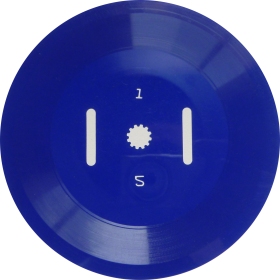Besides original video, time-lapses, audio and various sampled media, the three main sampled story components of Elegy Highway are: Freedom Highway, a ‘talking letter’ audio recording and Carlos Grasso’s personal family home movies and road trips footage.
FREEDOM HIGHWAY is a 1956 Greyhound bus promotional film about Jimmy Rollins, a boy scout headed for a jamboree in Washington, D.C.. Typical of many of these promos from that era the story is over wrought, weirdly patriotic, and surreal considering the promos banal purpose. Jimmy’s co-passengers include: the angry father of a dead soldier on his way to pick up a medal for his son, a smitten professional football player wooing a pretty young woman unsure of her impending marriage to a stuffy man, and a patriotic, nameless ‘mystery man’ who is implied to be an American ghost from parts and destination unknown. His purpose appears to be the conscience of American mythology. The film is expectedly corny and unintentionally hilarious, but considering the current bland hyperbole of promotional ‘content’, it’s impressive for its creative reach as a story. Watch this sequence or you can watch the entire film at Archive.org.
Of note are very early appearances by future Hollywood stars Tommy Kirk and Angie Dickinson. Tommy Kirk plays boy scout Jimmy Rollins in Freedom Highway. He started in The Mickey Mouse Club and went on to fame as a Disney studio actor in films including Old Yeller, The Swiss Family Robinson, The Shaggy Dog and many others.
Angie Dickinson plays the young woman wooed by the football player in Freedom Highway. Arguably the best actor in the film, Angie was famous for her many TV roles and movies (Dressed To Kill), but primarily as the star of the popular 1970’s cop drama, Policewoman. Sexy, saucy and super-cool she was also considered the only female member of Frank Sinatra’s infamous Rat Pack.
The film also features a brief appearance by country & western star Tex Ritter, an original singing cowboy on radio, in countless movies, tv serials, books and country music albums from the 1930’s to the 60’s. He was also the voice of Big Al, one of the Disneyland “Country Bear Jamboree” characters who sang “Blood On The Saddle” in a most melancholy baritone. He may be as well known for being the father of late actor John Ritter who played Jack Tripper on Three’s Company in the late 1970’s and early 80’s.
SOUNDSCRIBER TALKING LETTERS
The talking letter recordings used in Asphalt Serenade were made in 1960 by a California housewife who sent them a couple of times a month to her husband working on a film in New York as a scriptwriter. The talking letter by SoundScriber was a machine that would record your voice and cut a floppy plastic disc like a record that would then be played on a like-machine at the receiving end via U.S. mail.


The discs were bought at a flea market and after they sat in a drawer for years, I decided to listen to them. After some technical issues transferring the discs I was astounded by what I heard. The housewife, Eleanor Oberlin, made twenty-two of these recordings in 1960 in which she mused freely in a stream-of-thought style on a variety of subjects, including their beloved dogs (especially one “Little Pooper”) and their various habits (especially voiding), the upcoming John F. Kennedy presidential election, the state of their sons, wicked neighbors, car repairs, the misery of summer heat, homosexuals, communists, war, popular culture, food, etc., etc.. You name it, Eleanor recorded it in a rambling, lilting voice. As I became immersed in her tales of the every day what emerged was a focused slice of an American life, an audio time-capsule of 1960 as told by a person living it day by day. The excerpts I used for the soundtrack are a perfect subtext to our film. In the future, when I have all the time in the world, I’ll post all of these remarkable recordings. For now listen to these unedited segments.
Carlos Grasso
SUPER 8 HOME MOVIES
The super-8 Grasso family home movies were used in the film because super-8 footage always looks good in a film and lends an air of ennui and gravitas. I used my own as our family took a road trip every year and which I continue to do. This sequence features Tomi Lizarraga Grasso (1936-2007), my mother and to whom the film is dedicated.
CFG

